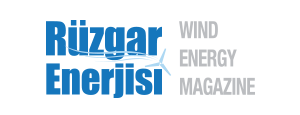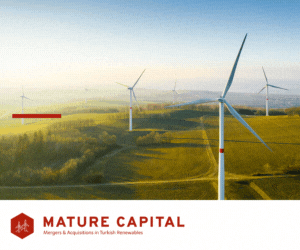Sector News
IEA President DR. Fatih Birol replied our questions

Dr. Fatih Birol, President of IEA answered our questions specially for Wind Energy Magazine. Dr. Birol made detailed statements in wide spectrum and multi-perspectives, which will shed light on corporate institutions, professionals and all who are related with energy&renewable energy, for the future of energy and position of Turkey in the world in energy transition.
International Energy Agency makes a self-definition as “center of global dialog in sphere of energy”. Can you briefly talk on fields of action of your organization?
IEA provides authoritative energy analysis through a wide range of publications, looking at short-term forecasts and long-term scenario analysis. IEA is also collects and harmonises energy data and statistics globally. We are also involved in training and capacity building workshops, presentations, and resources. Overall IEA’s work focuses on:
- Energy Security: Promoting diversity, efficiency, flexibility and reliability for all fuels and energy sources;
- Economic Development: Supporting free markets to foster economic growth and eliminate energy poverty;
- Environmental Awareness: Analysing policy options to offset the impact of energy production and use on the environment, especially for tackling climate change and air pollution
- Engagement Worldwide: Working closely with partner countries, especially major emerging economies, to find solutions to shared energy and environmental concerns.
As emphasized in World Energy Outlook 2018 report, energy supply depending on fossil fuels doesn’t commit sustainability. How do you evaluate energy supply and policies worldwide?
The challenge for energy policy in a time of transitions is to accelerate and broaden investment in cleaner and more efficient energy technologies, while ensuring at the same time that all the key elements of energy supply, including electricity networks, remain reliable and robust. That is not simple to do – but this rebalancing does not mean that investment in fossil fuels disappears overnight.
It is also important to distinguish between the different fuels, coal, oil and gas, as they deliver different services and have different environmental footprints. In addition, it might be easy to find substitutes for fuels in some sectors – such as electricity generation – but much more difficult in others, for example jetfuel for plans, or fuels used in specific energy-intensive industries. So we need to be having smart conversations about energy: it’s a complex system and we’ll multiple technologies and approaches if we are to make it more secure and sustainable.
One of the most important subjects related with energy policies is energy supply security. Can you talk about your works on this subject?
Ensuring energy security has been at the centre of the IEA’s mission since its founding in 1974. Created in the context of the oil crisis, the Agency’s core mission has a particular emphasis on oil security, where every IEA Member country is obliged to hold oil stocks equivalent to at least 90 days of net imports and should have emergency response measures in place to be able to effectively contribute to an IEA collective response to a major oil supply disruption. In the decades since its creation, as global energy markets have evolved, the IEA has broadened its energy security mandate to include gas and electricity security, without formal obligations but based on peer learning of best practices. Moreover, as a growing share of global energy consumption takes place outside of IEA member countries, the IEA has built close ties with countries such as China, India, and key ASEAN member countries, as Association countries, to build and strengthen their emergency response capacities and ability to collaborate with the IEA to assure global supply security.
In order to maintain an effective collective response system, the IEA conducts emergency response exercise and training sessions every two years; the latest exercises, conducted in 2018, had the participation of countries which together represented some 70% of global oil demand, compared to only 46% if the exercise had been limited to IEA Members alone.
To help strengthen the energy security polices of individual countries, the IEA also conducts peer reviews, approximately every 5 years for each IEA member country, where a team of experts provide an assessment and key recommendations for the country to make improvements. In addition to such reviews, in the case of Association countries, the IEA also conducts studies, tailor-made workshops and training sessions focused on assisting them to build and improve their energy security policies. Most recently, this has included workshops on emergency stockholding possibilities for India in 2018, an IEA statistics training workshop in Beijing in 2018, and the release in July 2019 of study into common energy security challenges facing the ASEAN + 6 region (10 ASEAN countries plus Australia, China, India, Japan, Korea and New Zealand).
Worldwide, along with the global climate change turning to be a more crucial problem, that investments on renewables show an increase. How do you evaluate the status of renewable energy, generally?
Renewable energy technologies are consumed in three different sectors: electricity, heat in buildings and industry, and transport. For electricity, we have seen an incredible cost reduction for wind and solar PV over the last decade driven by policies in many countries. For instance, solar PV costs declined by 80% since 2010 and we expect this cost reduction to continue in the coming years.
However, renewable capacity additions in 2018 did not increase for the first time since 2001 due to solar PV policy change in China. This stalling has shown the importance of policies for future expansion despite rapid cost reductions. On the other hand, policy efforts remain very limited in transport and heat sectors where renewable penetration remain much lower compared to electricity. These two sectors account for almost 80% of global energy demand thus require more policy attention for decarbonisation.
Where do the countries stand according to 1.5 degrees target suggested by Paris Agreement?
Global energy consumption in 2018 increased at nearly twice the average rate of growth since 2010 while the Paris agreements requires CO2 emission to peak and decline immediately. Overall, we are not on track with the Paris agreement unfortunately. Our Tracking Clean Energy Progress assessment also showed that only 7 technologies (Solar PV, Bioenergy, Storage, Electric Vehicles, Rail, Lighting and Data Centres) are on track, while other 28 technologies are either off track or needs improvement.
In spite of various fluctuations in implementation of European countries’ energy targets of 2030, the proceeding is hopeful. In this process, what’s IEA’s role?
The European Union and most of its member countries are part of the IEA. We are assessing and tracking their renewable energy penetration regularly as part of our “In depth energy policy reviews” and provide policy advice how to accelerate the penetration of both renewables and to improve energy efficiency. Ambitious long-term targets followed by sound policies are key to achieve higher renewable energy penetration. The previous 2020 renewable energy targets have shown the success of ambitious policies at the EU level.
At time you become IEA Executive Director, you made ascensions related with developing countries and many new members joined the association. How do you evaluate the energy vision in developing countries?
The IEA family of 30 Member countries and 8 Association countries accounts for almost 75% of global energy consumption and more than half of global energy production. Energy is key for the economic development of emerging economies and developing countries. Their energy demand growth is much faster than developed countries. Developing countries have great renewable energy resource potential.
At the same time, access to affordable and reliable energy is very important. With recent cost reductions, renewables offer a key opportunity for developing countries to reduce their energy import bills and use local resources. However, policies are needed to tackle challenges concerning regulation, affordable financing and grid infrastructure.
Turkey, perhaps has experienced the disadvantages of not possessing fossil fuel reservoirs, however, in terms of renewable sources like solar and wind energy, the situation is reverse. How do you evaluate the current energy policy of Turkey?
Turkey’s wind and solar untapped resource potential is enormous. With the transition from feed-in tariffs to competitive auctions, Turkey has achieved one of the lowest wind and solar contract prices globally. Renewables offer a great opportunity to reduce import energy bills and reduce energy dependency.
According to you which measures should Turkey take in order to increase the shares of renewable energy?
We officially assessed Turkey’s energy policies (including renewables) in 2016. Turkey has made a lot of progress since our latest review, however some areas of improvement still remain:
- There are still barriers for renewable energy stemming from the long and multi-layered permitting procedures and the slow progress of the electricity grid expansion.
- Turkey can learn from other IEA countries on how to improve the wind mapping, forecast and system operation with higher shares of variable renewable energies, notably Ireland and Denmark.
- Much priority is given to renewable electricity. Turkey remains below its potential in other sectors, like biofuels or renewable heat. If the government wants to develop investment in this area, subsector renewable targets are needed for transport and heat.
One of the articles of the agenda is energy storage systems. What do you think about this subject?
Similar to wind and solar PV, the cost of energy storage systems have declined significantly. In the coming future, storage systems (both behind-the-meter and utility scale) will play an important role to provide flexibility to power systems which is needed with the increasing share of variable renewables.
-

 Events5 years ago
Events5 years agoCanada and Turkey women working in the renewable energy sector in met
-

 Manufacturers of wind turbines5 years ago
Manufacturers of wind turbines5 years agoGE’s Haliade-X 12 MW prototype to be installed in Rotterdam
-

 Operations and Maintenance6 years ago
Operations and Maintenance6 years agoGENBA is on the rise; another milestone passed by in global existence
-

 Genel8 years ago
Genel8 years agoEWT launches the DW61, It’s most efficient and high energy producing wind turbine
-

 Genel9 years ago
Genel9 years agoInternet of things will empower the wind energy power plants
-

 Turbine Manufacturing6 years ago
Turbine Manufacturing6 years agoİğrek Makina focused on developing and producing Machine Tools and Wind Energy Turbines
-

 Energy management systems5 years ago
Energy management systems5 years agoDemand/Supply – Renewable energy with guarantees of origin (GO)
-

 Events5 years ago
Events5 years agoKey Players from 10 Nations will Show Their Strong Positions at APWEE
-

 Manufacturers of wind turbines5 years ago
Manufacturers of wind turbines5 years agoThe Nordex Group receives first order for Delta4000 turbines from the USA
-

 Manufacturers of wind turbines4 years ago
Manufacturers of wind turbines4 years agoENERCON installs E-160 EP5 prototype
-

 Genel8 years ago
Genel8 years agoZorlu energy envisages a bold new future based on renewables
-

 Manufacturers of wind turbines5 years ago
Manufacturers of wind turbines5 years agoENERCON and Lagerwey together develop two new WEC types
















Pingback: oil and gas producing economies are affected by climate change